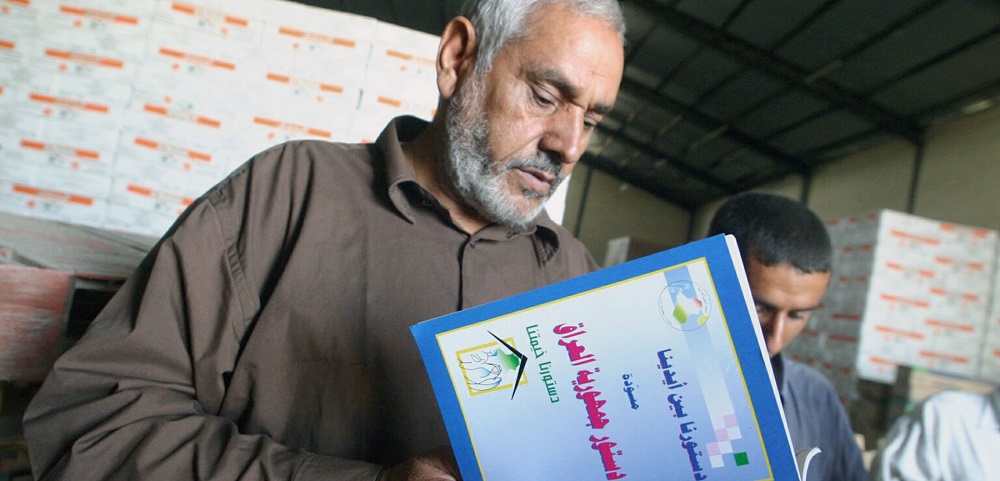Alwaght- The new wave of Iraq protests that erupted on October 25 has pushed the course of developments and also the demands into a new stage. In the reignited demonstrations, the economic and political reforms have moved aside giving place to bigger demands like constitution change. Meanwhile, the shift from parliamentary to a presidential system is raised by some voices. Evidence even shows that the parliament is considering debates on the issue.
But how possible is it to transform the political system in Iraq? What are its benefits and obstacles?
Iraq’s political system: Parliamentary or a mix of the two systems
Usually, a state is run by a presidential or parliamentary political system. The presidential system is a result of full separation of powers in which the president as an executive head of the state is directly elected by popular vote. He gets full power to choose the ministers and design the national policies. The president in this system answers to the members of parliament who represent people.
But in the parliamentary system, the government emerges from parliament. The parliament in this system has supremacy over the government legally and constitutionally, as it can create the government or dissolve it.
After the collapse of Saddam Hussein's rule, Iraq leaned to a parliamentary system, though not fully adopting the standard characteristic of a parliamentary system. Although the president and prime minister are picked by the parliament, which means election by indirect popular vote, the president has special powers like vetoing parliament bills and resolutions. The post of president in Iraq is never ceremonial though it is said to be created to exhibit national unity. So, a mix of the two common political systems can be seen in this Arab country.
Requirements of a shift
Any move to shift to the parliamentary system will take constitutional reform which is possible only through a referendum in which people of all 18 provinces should vote yes. First, a committee representing 18 provinces should form, study amendments, and deliver the results to the parliament. Once passed by parliament, the modifications will be put to a direct citizen vote. Should two-thirds of the population of three major provinces vote no, the shift process will be withdrawn.
What are the capacities of the system shift?
At present, a parliamentary system can grant the following potentials to the Iraqi government.
1. Addressing the popular demands to calm them
Certainly, at present, implementation of the demands cannot realize because the protestors ask for substantial changes that are impossible to do by any political group and government in the short run. The transformation of economic and social structures is a long-term process. So, only fast and tangible changes can satisfy the protestors. Removing Prime Minister Adel Abdul Mahdi and holding a constitution reform referendum are the most available choices the Iraqi political factions and elites can think of to get the demonstrators to their homes.
2. Shiite groups’ support
The only side in Iraq that cannot feel threatened by shift to a presidential form of governing is the Shiites because they have the majority in the country and under any democratic process they can gain supremacy over other groups.
Currently, some Shiite sides, mainly Fatah parliamentary coalition led by Hadi al-Amiri, support presidential structure as they are sure that a Shiite figure will be elected under a presidential system. This, by the way, will facilitate the solution of much of the twisted challenges now causing troubles in the parliament.
Limitations of shift
A political change in Iraq is more limited than easy to go ahead. Here is why:
1. Abolishment of coalition government system
In the majority of the countries with the ethical multitude, the coalition government system is commonplace. Lebanon is one example in the Arab world. In post-Saddam Iraq, too, this model was adopted. The Shiites hold the prime minister post. The Sunnis hold the parliament speaker post. And the Kurds are given the presidency. Under a presidential system, the prime minister post will be abolished, giving place to Shiite-secured president post. Under this situation, there will be a serious tension between the Kurds and Sunni Arabs over the speaker post.
2. Kurds could oppose political shift
The key obstacle ahead of change to the presidential system and even before that alteration of the constitution is the Kurds. Any change of the constitution should be preceded by a referendum in which people majorly say yes to the process. The change will be abandoned if two-thirds of the population of three provinces reject it. A no vote by Erbil, Sulaymaniyah, and Duhok provinces in the Kurdistan region can easily block any change the Kurds find detrimental to their interests. There is a strong possibility that the Kurds block any changes as they are worried about scraping post-2003 constitution articles that guarantee their autonomy.
3. Persuading Sunni Arabs for a political model is hard
In addition to the Kurds, the Sunni Arabs are another bloc that can rise in the face of the shift to the presidential model at the end of the road. There is a possibility that with regard to the Kurdish weight in Baghdad and their power to block constitution reforms they are given key posts like parliament speaker and even ministerial posts to be lured into agreeing with changes. But here the Sunni Arabs will worry to fall victim to such compromises, something provoking them into opposition to the presidential rule or at least press for fundamental guarantees to their rights and powers under any change.



























